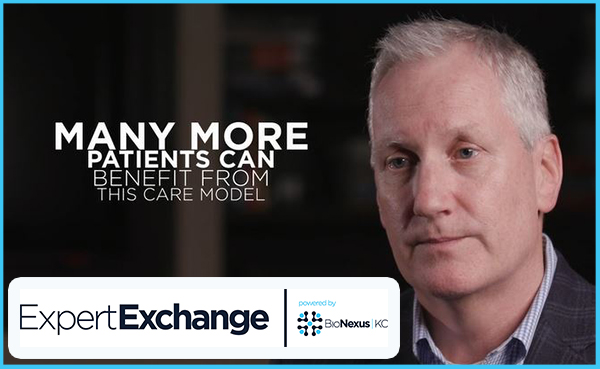
Success in healthcare is allowing a patient to reach future milestones. Sometimes, that means a cure, but it can also mean additional years instead of months to be there for birthdays and graduations. For Dr. Timothy Pluard, metastatic breast cancer patients have been underserved by this success. As Medical Director of Saint Luke’s Cancer Institute and Director of Saint Luke’s Hospital of Kansas City’s Koontz Center for Advanced Breast Cancer, he has built a holistic care center in Kansas City and wants to see this model of success widely adopted.
Research funding has often been allocated away from difficult and advanced diseases like stage 4 metastatic breast cancer because there was an assumption that the patient would die within a short amount of time. “That has changed,” Dr. Pluard said. “With newer treatments and advances in understanding the biology of cancer, these patients are living years with metastatic disease, and it’s one of those unique cancers where patients can live such a long time with advanced disease.” He has built a treatment center that not only focuses on better therapies but also incorporates psychology, nutrition, exercise, and spirituality into the treatment regimen. “Patients are cared for by a team, not just a physician,” he said.
When Dr. Pluard began designing The Koontz Center, there were very few studies published about how patients with metastatic breast cancer should be treated. For example, there were only 10-20 studies describing the exercise needs for these patients, yet there were over a thousand about early stage breast cancer. This demonstrated how underserved the population was.
Dr. Pluard and his team got to work. During the initial consultation, the patient meets with the entire team, which includes psychosocial support as part of the integrated model. After each consultation, the care team meets and discusses each patient. “I have to say, the first time we did this, the absolute first patient, I was blown away,” Dr. Pluard recalls. “I had tears because each one of the individuals around the table had identified something in that patient that could be addressed that nobody else had. So, it really drove home the point about the integrated approach and really caring for the whole patient.”
The result has been measured in the hope that the treatment team provides for their patients. “Even though we don’t have a cure, we have treatments that will extend their lives by years. And to see milestones, the birth of a grandchild, a child graduating from high school, those are tangible victories. I believe there is reason for hope,” Dr. Pluard said.
In one of many collaborations, the Koontz Center works with Pfizer to hold a biannual retreat at a ranch in Kansas, away from the city. The patient and either their spouse, partner, or caregiver can spend a weekend with the care team and talk about some of the shared experiences in their journey in a non-threatening, calming manner.
Dr. Pluard also has an interesting collaboration with Garmin. Saint Luke’s is using the company’s wearable devices to test a hypothesis that real-time biometric data, like activity, heart rate, and pulse rate, can provide indicators ahead of when patients will get sick. If they can intervene earlier, this may keep their patients out of the hospital and improve their survival outcomes. “One of the concepts in metastatic breast cancer is that you have a reserve tank. Every time you get sick, you are tapping into that tank, eventually, there’s nothing left,” Dr. Pluard said. “If you get sick and go into the hospital and you get out, you’re not at 100%, and you still have cancer, so now you are at 80% and still have cancer if you get sick 3 months from now, now you are at 60% and pretty soon you’ve got nothing left, and you’re done.”
He was always interested in science but took a career detour and graduated and worked as a software engineer before returning to medical school. When it was time to choose a specialty, he felt that oncology was closest to a dynamic breakthrough that would happen during his career. He didn’t know how significant that shift was until the sequencing of the Human Genome Project in 2003.
The holistic care that Dr. Pluard and the Koontz Center’s team pioneers and practices transcends the model of care across all of cancer treatment. He hopes to see this exported to treatment centers across the country. Even though there isn’t a cure for stage 4 metastatic breast cancer, he sees it as a medical win when his patients get the opportunity to be with their families to celebrate their next milestone.